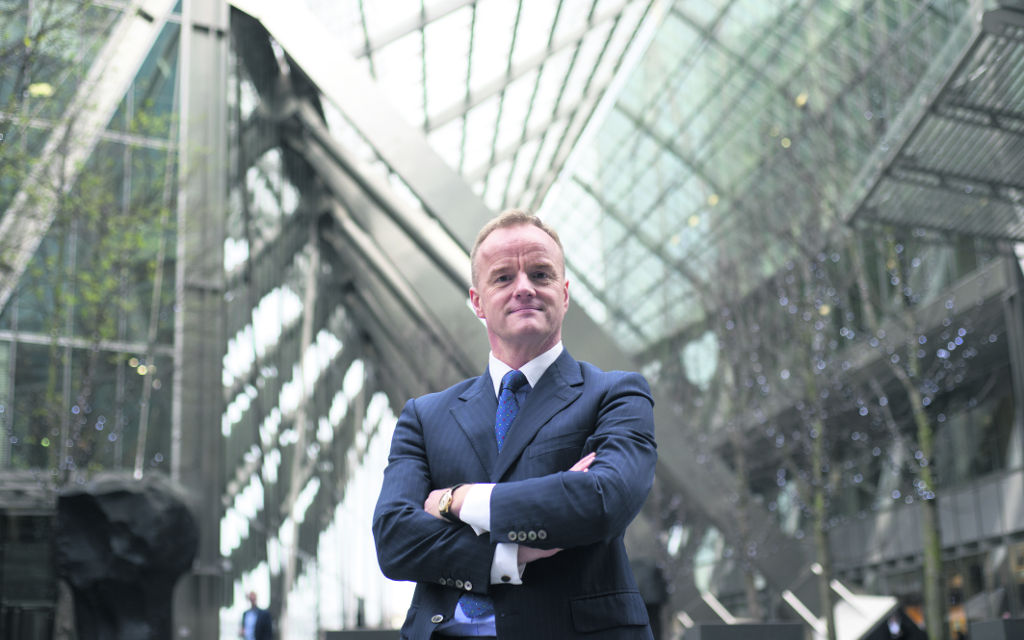Beyond boom and bust: Interview with Herbert Smith Freehills’ UK head of corporate Ben Ward

Ben Ward is not cautiously optimistic about the markets in 2016. He says that’s not positive enough – he’s really very optimistic, but insists that “sustainable growth” are his watchwords for 2016. Spoken like a true lawyer.
Ward has just taken over as Herbert Smith Freehills’ (HSF) head of corporate in the UK, overseeing everything from private equity and IPOs, to corporate mergers and acquisitions (M&A), so he is in a good position to be confident.
Gazing through the window across Liverpool Street and into the heart of the City, you can feel his excitement when he talks about how confidence is returning to companies. It’s not just HSF, the City itself is booming.
“All of the professional service firms, all the people who work in this wonderful city, are doing deals, it’s great because it means that we’re doing well. We [in London] know how to execute a deal.”
Mergers and acquisitions broke records in 2015, but Ward won’t be drawn into whether this marks a return to pre-crisis growth, and indeed confidence. “Really what does that show? I think one should be focused much more on medium and long term growth. The confidence is there but still there is caution. I think what we’re seeing is sustainable,” he says.
“It doesn’t seem to me that we’re in a boom-bust cycle. I don’t feel as if we’re operating in a boom environment. And the reason for that is that is people – investors, corporates, private equity companies – are being very sensible. There’s evaluation discipline, people are spending time to think about and execute their transactions and they’re looking to get the right deal. I don’t feel as though there’s froth or things are out of control.”
This is why Ward says 2016 may not be a record-breaking year. “There must be a reasonable chance that 2016 won’t break that record,” but that’s no bad thing he said. Better to avoid the boom and bust.
“M&A requires confidence but there is still a lot of tempering within that confidence. I see a lot of discipline within boardrooms.
“After the financial crisis, everyone just hunkered down and it was acceptable to do nothing. I think that shareholders now expect executives to use a company’s resources to create shareholder value through M&A,” he says.
Ward expects another two to three years of steady growth. “I think it’s fair to say that we’re always in a cycle [but] we’re not at the peak. We’re not at the edge of a cliff, a lot of what we’re seeing in M&A activity coming through the London market is, I believe, sustainable for sometime yet. I can preface this by saying that I’m a lawyer, what do I know?
“This comes from discussions with clients about how they’re thinking about their investment opportunities and there just isn’t the sense that we are on this rollercoaster, and I think that that’s very positive. In former boom cycles, deals had to be done in six weeks, now people accept it might take four months. But they’re going to spend time and energy trying to get the deal right rather than rushing into it at any cost.”
One of the reasons he thinks 2016 may not top this year’s M&A values is the size of the deals. “It depends how you define activity. There’s been some huge deals this year, such as SABMiller and AB InBev, that will flatter the deal size league tables and in terms of M&A values, it may go down next year. But what most people are interested in are transactions across a range of sectors and overall activity, the number of deals.”
One of the busiest markets will be the oil and gas sector, although that will largely be distressed M&A as beleaguered companies look to sell off loss-making assets.
The consumer goods sector is also set for continued activity, as companies seek to consolidate market share, and make savings, through combined distribution for example. Secondary sales after mega-deals will also contribute.
“Where you’ve got brands and stuff that people want to buy, and margins always being challenged there are real benefits in M&A activity for consumer goods. It’s what I call the real economy.”
Continuing the theme of 2015, the US will carry on driving M&A, particularly US companies buying businesses aboard. Western Europe will see activity pick-up, as it remains attractive to American buyers and Asian investors. “Japanese trading houses are still very active in buying assets in Europe, China as well. Japanese investors especially are in it for a very long-term basis,” according to Ward.
Private equity, the driving force behind so many deals, has also seen a shift in attitude. “I think private equity investment is now based on more realistic returns from longer term holds. They are looking for real, sustainable growth.”
Meanwhile, shareholder activism is here to stay, and it’s a good thing, he says. Not surprising maybe, given HSF advised Sherborne who recently managed to get Edward Bramson elected to the board of Electra. “Shareholder activism is a positive. And, it’s here to stay and rightly so.”
So, the future’s bright for Ward in his new role, and will 2016 be all plain sailing? “Come and see me next year” he laughs, “then we’ll know for sure.”